Africa
Covering an area of 29.8 million square kilometers, Africa is the second largest continent of the world. It is bordered northwards by the Mediterranean, westwards by the Atlantic Ocean and eastwards by the Indian Ocean and the Red Sea. It stretches some 8000 kilometers in length and has a maximum width of 7200 kilometers. The tallest peak in Africa, the Kilimanjaro, rises 5895 meters above seal level. The largest rivers of the continent are the Congo, the Niger, the Nile, and the Zambezi.
No recorded history of Africa existed before the arrival of the Europeans and it was only during the nineteenth and early twentieth century that foreign explorers, missionaries and anthropologists began recovering parts of this continent's history.
The inhabitants of this continent are mainly derived from the Bantu ethnic group, whose name literally means "people". The Bantu live mainly in southern Nigeria, mid-ways in the lush valley of River Benue.
The migration of Bantu tribes paralleled that of animals moving towards eastern Africa, Sudan and Somalia, and thence reached the tropical forests of this continent and eventually its southern and western regions. We set foot on the black continent; a continent torn by strife against foreign colonial powers and hostilities between various tribes.
European colonial powers had invaded all the lands of this continent and taken its population into slavery during the eighteenth and nineteenth centuries. The eastern countries of the continent, down to its southern tip, were British colonies. Central Africa, including the Congo, belonged to Belgium. Northern and northwestern Africa were administered by France. Angola, in western Africa, belonged to Portugal.
The rise of liberation movements in Africa in fact coincided with Mr. Gandhi's call on the Indian nation to overthrow their British rulers, which was heard across the world. That was when the peoples of eastern Africa began their struggle against British domination. Of course, the population of this continent was fully justified in its struggle, but this made our exploration very difficult and dangerous. The difficulties we met during our travel in Africa were not limited to the cobweb of complicated regulations in the continent's newborn countries. Many border passages were closed and we occasionally had to cross them on the sly.
In many countries people were fighting against the white invaders and our white skins actually put us in danger while traveling across the continent. We were rejected by the white population of South Africa because of our Asian origins, and the black population avoided us in reason of our white skin.
A fierce war having broken out in Zanzibar between two rival parties, we barely escaped execution at the hands of the black population, who assumed we were Arabs, whom they detested. We were eventually rescued by the British police and managed to escape unhurt from Zanzibar. In order to reach northwestern Africa, we had to pass through Angola, just when the 50,000-man-strong army of Angolan freedom fighters established at Leopoldville under the direction of Holden Roberto was at war with the Portuguese forces. The Portuguese set fire to villages across the country in order to force them into exile in neighboring countries. Being white-skinned, we were in constant danger of receiving the same treatment as Portuguese soldiers. Other similar events occurred during our travels across Africa.
Arriving from the Red Sea, we landed on Sudanese soil and proceeded to South Africa via the continent's eastern countries and thereof to Angola and central Africa, where we were able to study the life of pygmy tribes. We then moved towards northwestern Africa and eventually crossed the Mauritanian desert and part of the Sahara before reaching Europe
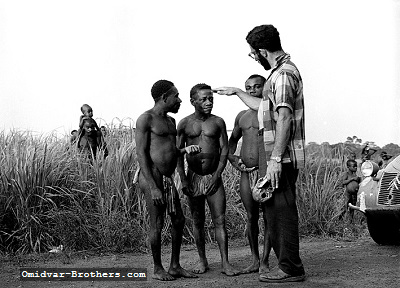
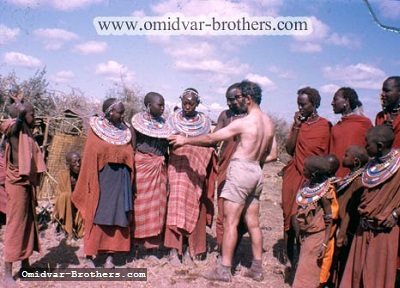
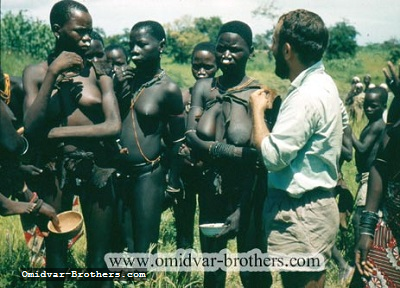
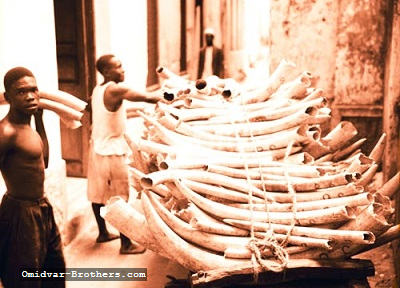
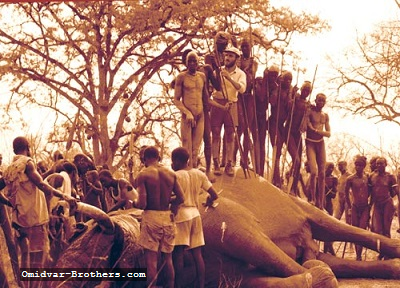
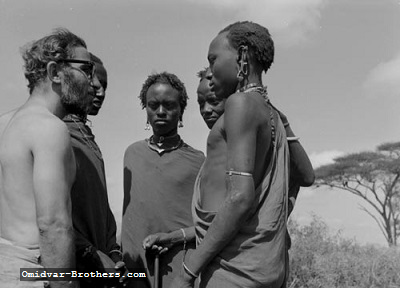
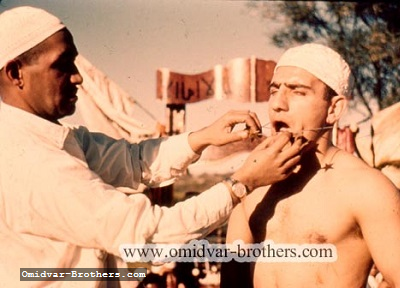
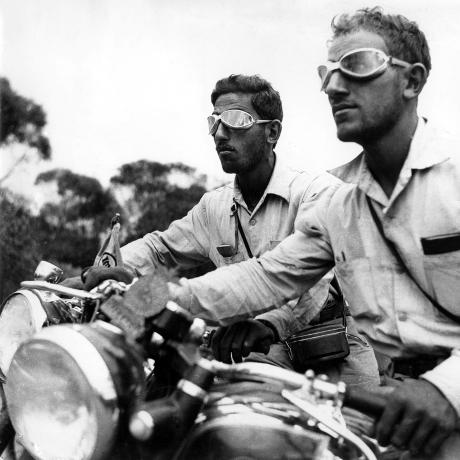 Omidvar Brothers
Omidvar Brothers